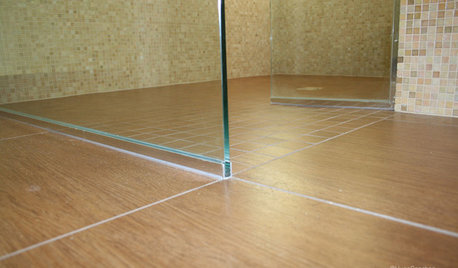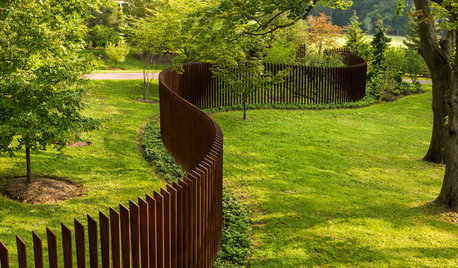Vermicomposting Different Materials
peppergrowman09
14 years ago
Related Stories

BATHTUBS8 Beautifully Different Tub Materials for Bath-Time Luxury
Elevate your bathroom — and your bathing experience — with a tub that feels like an indulgence
Full Story
REMODELING GUIDESCarrara vs. Calacatta Marble: What Is the Difference?
The answer is in the color and veining of these popular Italian marbles
Full Story
MATERIALSRaw Materials Revealed: Drywall Basics
Learn about the different sizes and types of this construction material for walls, plus which kinds work best for which rooms
Full Story
ARCHITECTUREModern Home Exteriors Turn a Corner With Mixed Materials
Breaking free from monochromatic monotony, exteriors with different materials on the sides create interest in an unexpected way
Full Story
KITCHEN COUNTERTOPSKitchen Countertop Materials: 5 More Great Alternatives to Granite
Get a delightfully different look for your kitchen counters with lesser-known materials for a wide range of budgets
Full Story
Night and Day Differences in Exteriors
Homes have different personalities when the sun goes down. See how these exteriors show themselves in the best possible light
Full Story
MODERN ARCHITECTUREArchitecture: How Details Can Make All the Difference
To know what makes a home design a hit — or near miss — you've got to understand this key ingredient
Full Story
DECORATING GUIDESChevron, Herringbone, Flame Stitch: What’s the Difference?
Make the right point by learning the differences among these 3 popular zigzag patterns
Full Story
TILEEpoxy vs. Cement Grout — What's the Difference?
Grout is grout, right? Nope. Cement and epoxy versions have different appearances, durability and rules of installation
Full Story
FENCES AND GATES12 Delightfully Different Garden Walls and Fences
If pickets seem picked over and you shrink from chain link, try these full-of-personality fencing alternatives
Full Story





mamaswormcomposting
sbryce_gw
Related Professionals
Wilmington Landscape Contractors · Chesapeake Ranch Estates Landscape Contractors · Crystal Landscape Contractors · Eagle Landscape Contractors · Hayden Landscape Contractors · Hickory Hills Landscape Contractors · Peoria Landscape Contractors · Conneaut General Contractors · Decatur General Contractors · Hermitage General Contractors · North Lauderdale General Contractors · Reisterstown General Contractors · Stoughton General Contractors · Valle Vista General Contractors · Avenal General Contractorssbryce_gw
peppergrowman09Original Author
mndtrp
Jasdip
rom.calgary.ab
wormy_acres